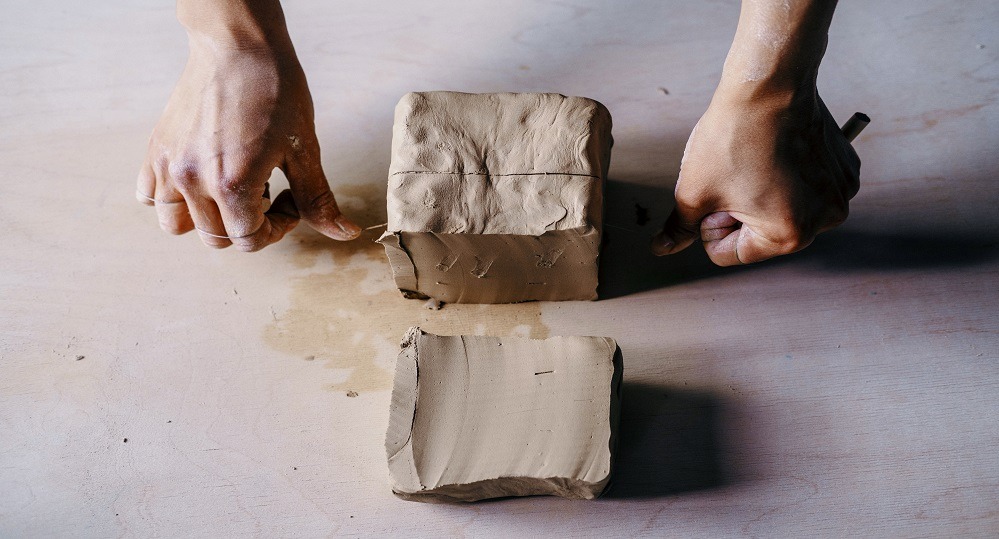Sustainable Clay: Integration of Food Waste With Clay

KEY INFORMATION
Materials - Ceramics & Glass
TECHNOLOGY OVERVIEW
Clay is a naturally occurring material composed mainly of fine-grained minerals, demonstrating plasticity through a range of water content. Given the low recycling rate of food waste in Singapore (18%), incorporating food waste in existing clay products presents an opportunity to conserve natural resources and develop more sustainable clay materials. This technology involves the development of food waste-incorporated clay, which permits safe biodegradation over time without the use of kiln firing. A selection of food waste is carefully treated and blended into the clay to create sustainable clay with high waste content, high nutrients, great workability, and appropriate shelf-life. Each type of food waste contributes different physical and chemical properties to the clay, affecting its biodegradability and workability. Apart from food waste, a naturally occurring binder is also added to ensure overall biodegradability. By adjusting the formulation of the food waste-incorporated clay, its appearance and other functional properties (such as strength and workability) can be made comparable to conventional clay, with the added benefit of nutrient (calcium, potassium, nitrogen, carbon) leaching capabilities. This creates sustainable, biodegradable clay for various built environment applications.
The technology owner is interested in working with companies seeking sustainable clay materials on joint R&D projects, out-licensing and test bedding opportunities .
TECHNOLOGY FEATURES & SPECIFICATIONS
Some features of this sustainable clay material include:
- Incorporated with high food waste content to provide high nutrient availability
- Good workability and strength upon drying in atmospheric and oven conditions (50°C, min. 48 hours)
- Omit the use of high temperature kiln open-firing while maintaining integrity of the clay
- Appropriate shelf-life in sheltered tropical environment
- Integrated with biodegradable binder to enhance the binding property between food waste and clay
- Able to release soluble nutrients upon contact with water
- Biodegradable over time (within 1-6 months)
POTENTIAL APPLICATIONS
Potential applications of the sustainable clay material include (but not limited to):
- Food waste receptacles looking to upcycle food waste into new materials
- Construction applications e.g., clay tiles
- Consumer products e.g, pottery clay
Market Trends & Opportunities
The global industrial clay market size was worth around USD 5.12 billion in 2022 and is predicted to grow to around USD 7.84 billion by 2030 with a compound annual growth rate (CAGR) of roughly 5.64% between 2023 and 2030.
Unique Value Proposition
- Creates a sustainable clay product through the incorporation of single and multiple food waste types whilst maintaining the workability of conventional clay
- Permits safe biodegradation over time with added benefit of nutrient leaching capabilities
- Energy-efficient as it omits the use of kiln firing
